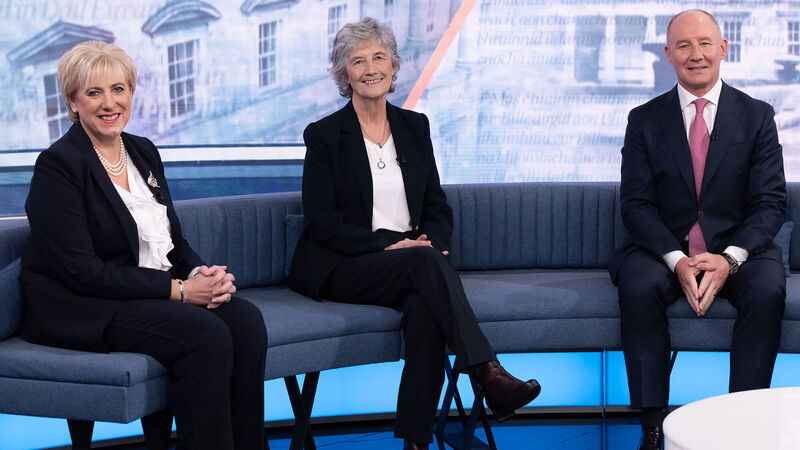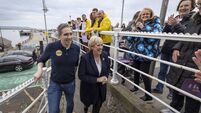Theresa Reidy: Three reasons for the brutality of presidential elections

(Left to right) Heather Humphreys, Catherine Connolly, and Jim Gavin in the RTÉ studios last Sunday before Mr Gavin's dramatic withdrawal. File photo: Conor O'Mearain/PA
Presidential elections are tests of human endurance and discipline. Uniquely in the Irish electoral landscape, candidates are subjected to the most intense and invasive scrutiny of every aspect of their lives.
There are three reasons for this.
















